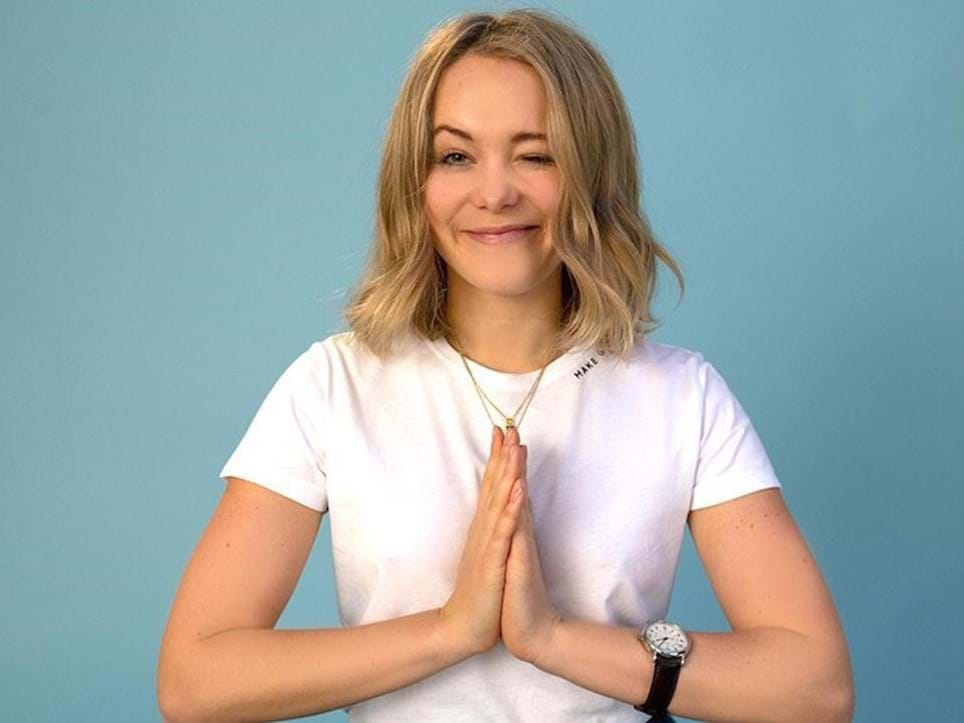Whether you decide to opt in for a weekly Zoom quiz with friends or not, 2020 has really proved – similar to how 2016 was about realising stuff – that you can digitalise anything. From social interactions to museum tours, our reaction to Covid-19 is to try to continue as (new) normal as we can, just in the virtual world. Poppy Jamie, founder of wellness app, Happy, Not Perfect and podcast, Not Perfect, has used the digitalsphere as a way of helping people understand their mental health, long before digital connections were a necessity, and as we Zoom instead of meet in reality, her personable being helps aid my mindset.
Despite it being me interviewing her, I feel inclined to share my Corona-related anxiety – the question everyone’s been thinking: post-corona, will life ever be the same again? – as if she was magnet it was attracted to. “[My mother and I] were discussing that in quite a lot of depth, because for a lot of people, they're actually going to develop anxiety about going back to reality after this,” explained Poppy, from her family home where she’s quarantining. Her mother is also a psychotherapist, which in this context enforce that mothers do know best. "There's definitely been days when I'm like, will I have forgotten how to socialise after this? Will I even want to go to that pub drinks I will semi-enjoy, but I feel like I should go to rather than wanting to? Now that you really don't have to talk to anyone that you don't want to, you really realise who you really truly adore out of your friends, because they're the ones that you've got nothing to talk about.” 
Socialising and the digital world have often been interlinked. Pre-Corona, a social gathering of any extent, would elicit several snaps being taken to be posted on the Gram, whether it be because we want to share with our followers what we’re doing, or just prove that we’re doing something they’re not. Instagram, in particular has been critiqued for the spreading of an unwarranted comparison epidemic, and with it being a part of our daily lives it’s hard to ignore. "Instagram has taken something that we've always done for hundreds of years and has just put it on steroid,” shares Poppy. “You just need to be consistently aware of the fact that Instagram is a magazine of people's outsides. When we look at it as comparing that to our insides, and when we're not taking the time to really check in with ourselves to really go, 'how am I feeling today?' That's when Instagram I think can be toxic… I would say self-police, and be firm on who you want to follow and who you don’t.” Despite this, it is a visual communicator that has developed the way we convey our experiences. Poppy herself admits "I go on the Happy, Not Perfect Instagram account, and we only follow positive accounts and it is heaven. I wake up and I'm ready for my boost, and that’s why Instagram is great, you can easily find quotes and reflections and really positive mental wellness influences and poetry and that's excellent.”
The app started in 2015, when Poppy was having a mental health low herself. "I sadly had a really awful burnout and suffered chronic exhaustion, and it was the same time I was hosting a show on Snapchat,” expresses Poppy. "I got all these messages from people going, I feel so stressed out, and I was saying to myself 'what is going on?' That's when I realised – and that was before we were even talking about mental health – how bad it was. We had all become experts in projecting the perfect self, when actually behind the scenes, we all share the same worries. We all share the same fears. We all share the struggles that life can be painful. And I thought, 'what can I create to help us through that?’” In 2020, the brand has developed to also having a podcast, Not Perfect, where each week, Poppy has a different medical expert to go in depth as to why we feel the feelings we do. "The app is like a brain gym, it gives a lot of exercises,” Poppy describes. "Whereas the podcast has allowed me to really deep dive into the human experience and learn about the brain through stories. I feel very lucky to be honest; for people to have given their time with me to come on and be interviewed.”
These conversations are so evidently important; speaking to Poppy I’ve already learned so much more about my brain than expected. I could write 500 more words and badly explain it myself, but I won’t, and suggest you listen to Poppy eloquently discuss it with the numerous doctors she has as her guest on her podcast. I will share this tip she shared with me, “Some practical tips that I can give is stubble diffusion. When you're feeling a certain way, rather than saying, 'I'm very anxious', rephrase that as 'my mind is feeling anxious today'. What you're telling yourself is that it's temporary. All emotions are. You're not going, 'I feel so anxious’ which will make your brain go, 'oh my god, does this mean I’m anxious forever?’ And then you panic. By saying, 'my brain is feeling anxious today', you're able to separate yourself from the emotion, because you are not your emotion. It's a bodily sensation.” This emotional rewiring, along with the breathing technique’s Poppy shares below, is a self-sufficient way of dealing with any Coronavirus anxieties, ensuring that everyone can get through this difficult period, one breath at a time.
More More More!
+ In Conversation with Dr Tara Swart: the smell of success...
+ In Conversation with Pollenet: the power of flowers...
+ Surprise Me!







